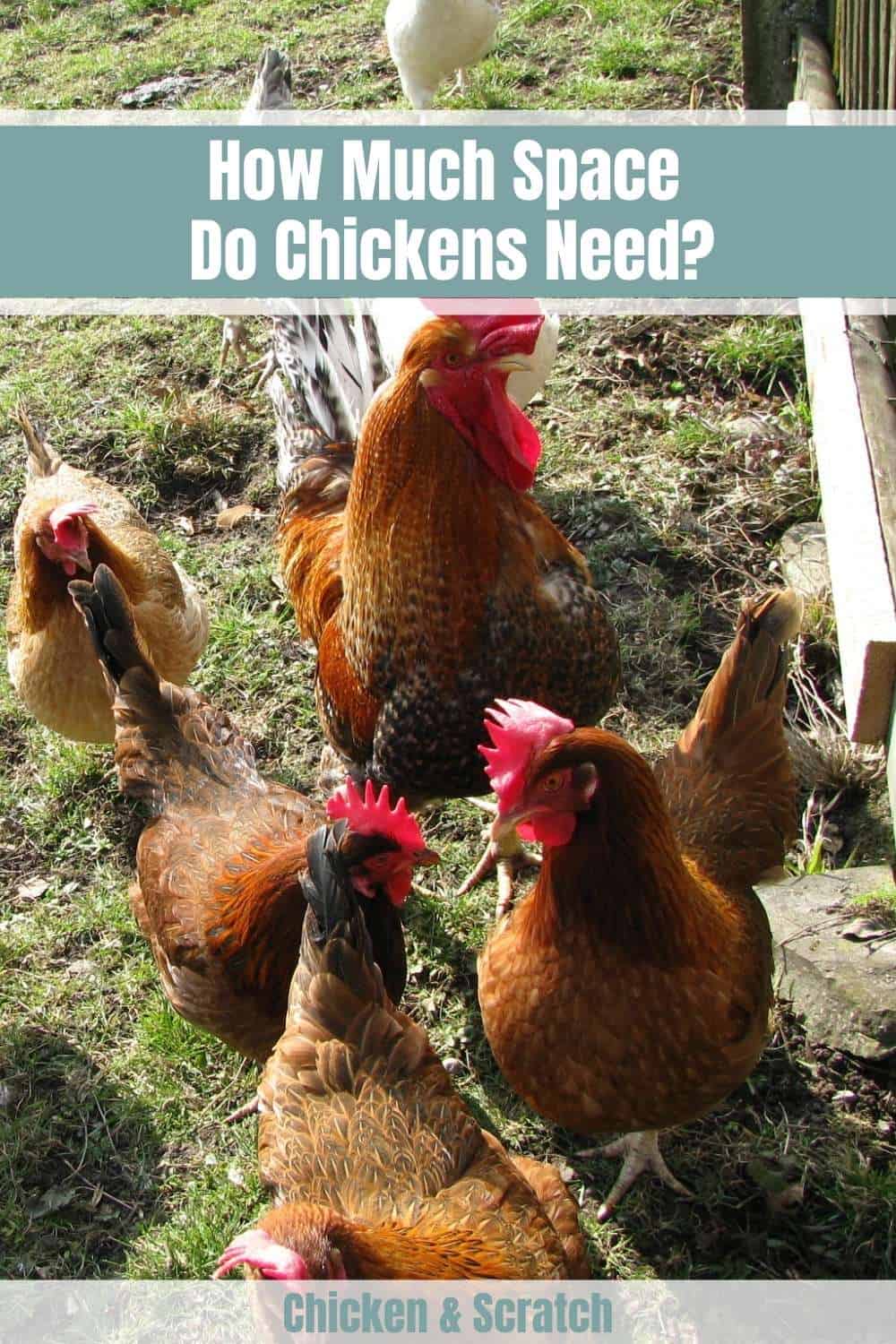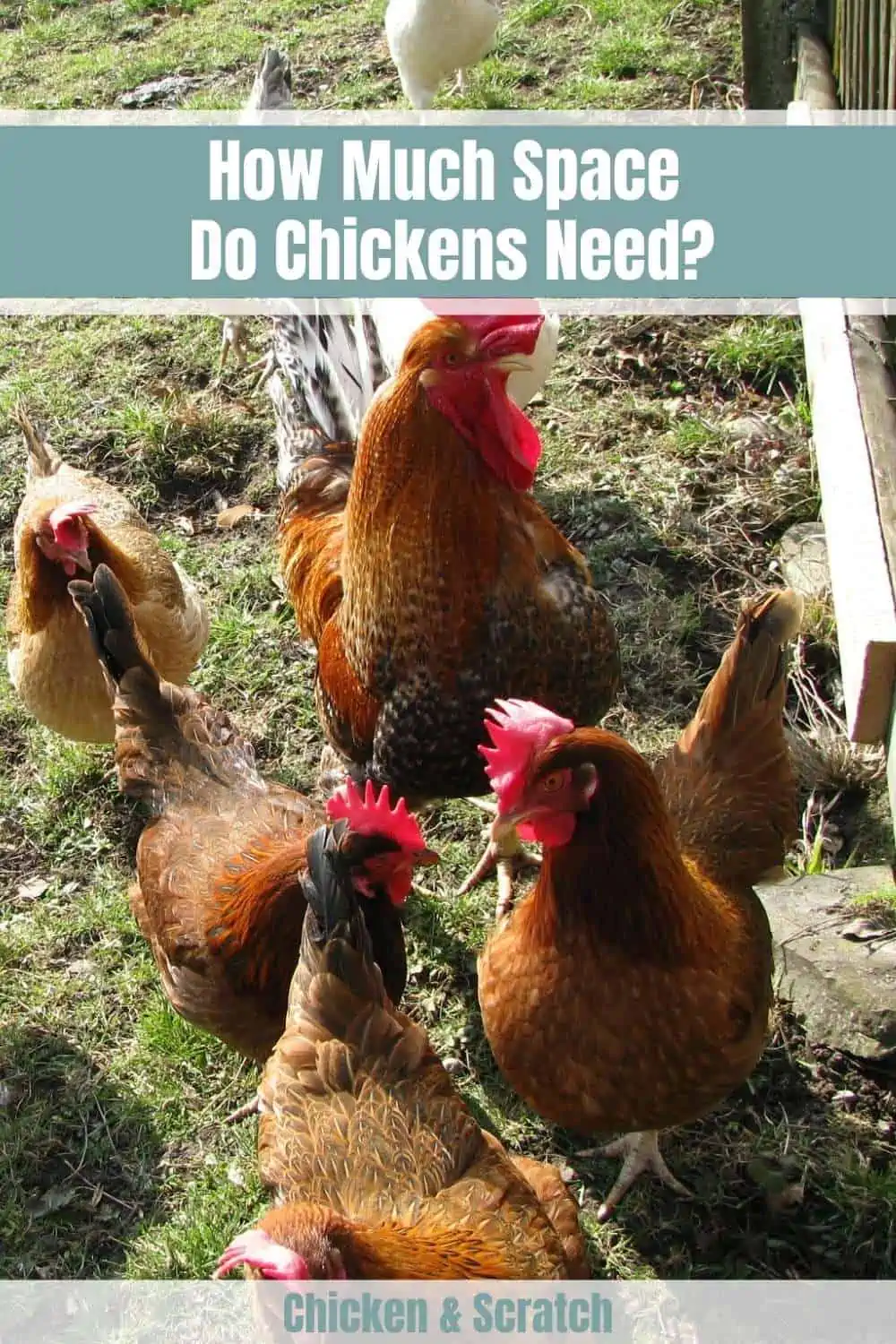We all need some personal space. It’s the same for chickens.
Chickens are small creatures. That’s why, sometimes, space becomes the least of the concerns of some new chicken handlers. It’s easy to assume that little critters only need a little space. I don’t blame them. That’s what I first thought too!
However, space is an important thing to consider. It should be on the top of the list instead of the bottom.
So, how much space do chickens need?
This article will cover
- Chicken Space: Chickens Need a Lot of Space
- How Much Coop Space Per Chicken?
- Nest Space
- Roost or Perch Space
- Run Space
- Factors in Determining How Much Space Your Chickens Need
- Why Do Chickens Need Lots of Space?
Chicken Space: Chickens Need a Lot of Space
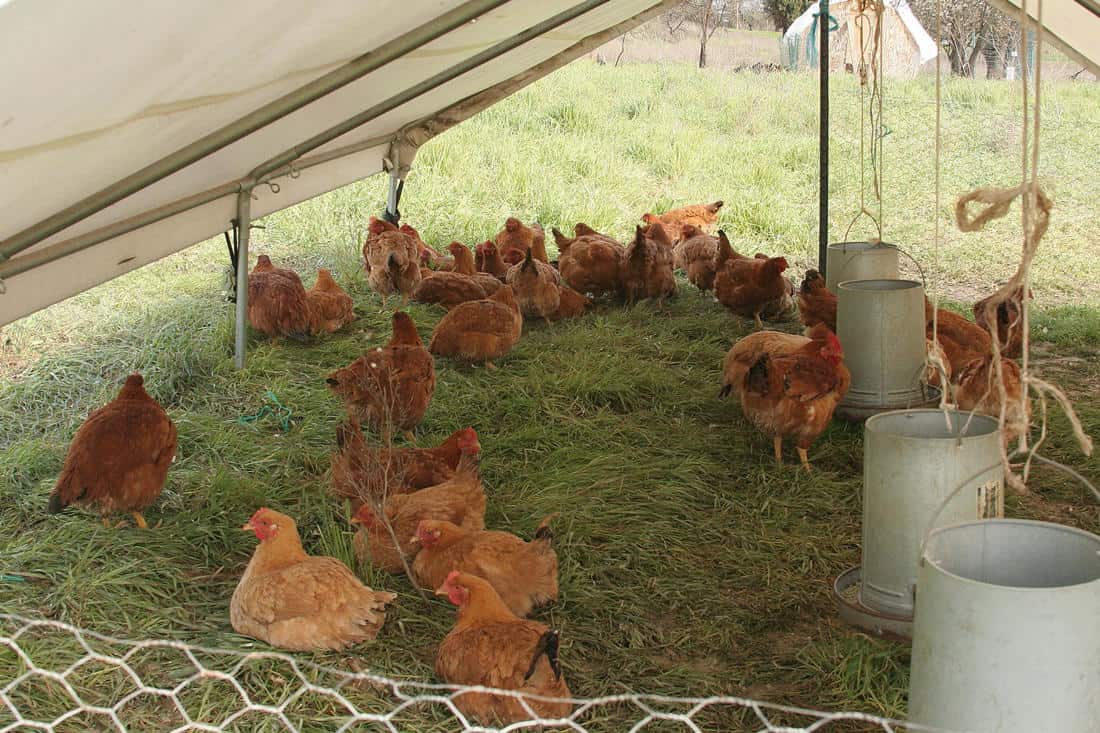
Numbers are tricky things. What would work for one may not work for another.
Several factors come into play when it comes to the space that chickens need. Taking that into account, different things will cater to each chicken handler.
We will be giving you average size and approximations, but it’s best to take it with a grain of salt.
However, as a general rule, bigger is better when it comes to the space that chickens need.
Also, you don’t have to worry about giving them too much space. Worry more about providing the chickens insufficient space.
How Much Coop Space Per Chicken?
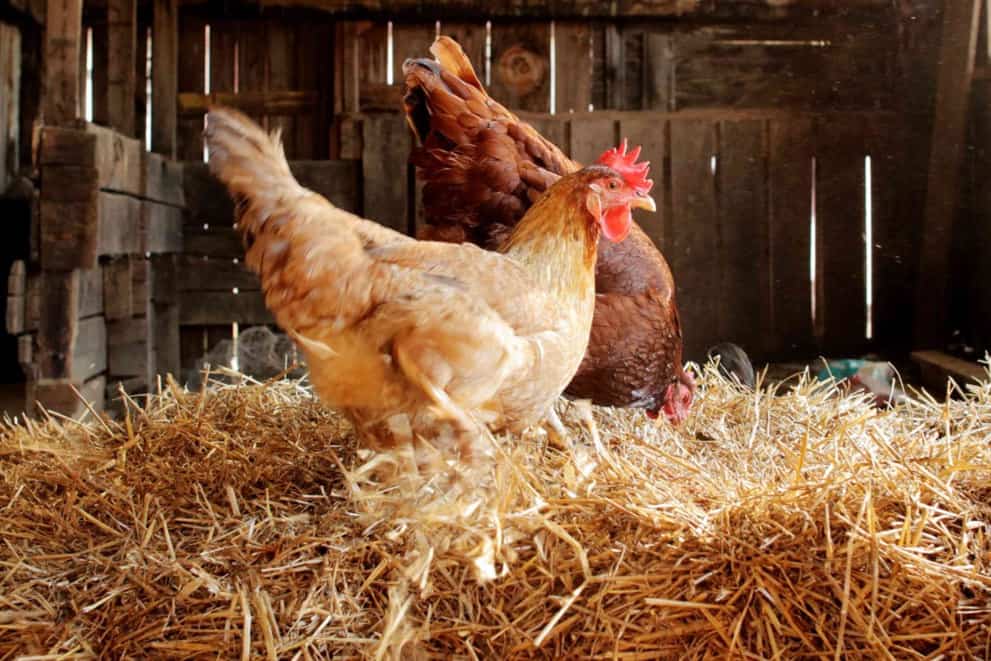
Two square feet is ideal for a small chicken (a bantam). You need to add another square foot for a medium-sized chicken and another square foot for a large-sized chicken. That would be 2 square feet for a small breed, 3 square feet for a medium breed, and 4 square feet for a large breed.
Others might prefer adding 2 square feet the larger the chicken breed gets. Still, others might opt to double those numbers. As we have said, different things work for each handler.
We are assuming that you are going to let your chickens roam outside. With that, we would suggest not to make the coop too big. They won’t be spending that much time in there. They would need that extra space for roaming.
Overall, providing at least 3 square feet of coop space per chicken would be ideal.
Still, having some trouble? You could try to use this chicken coop size calculator.
Nest Space
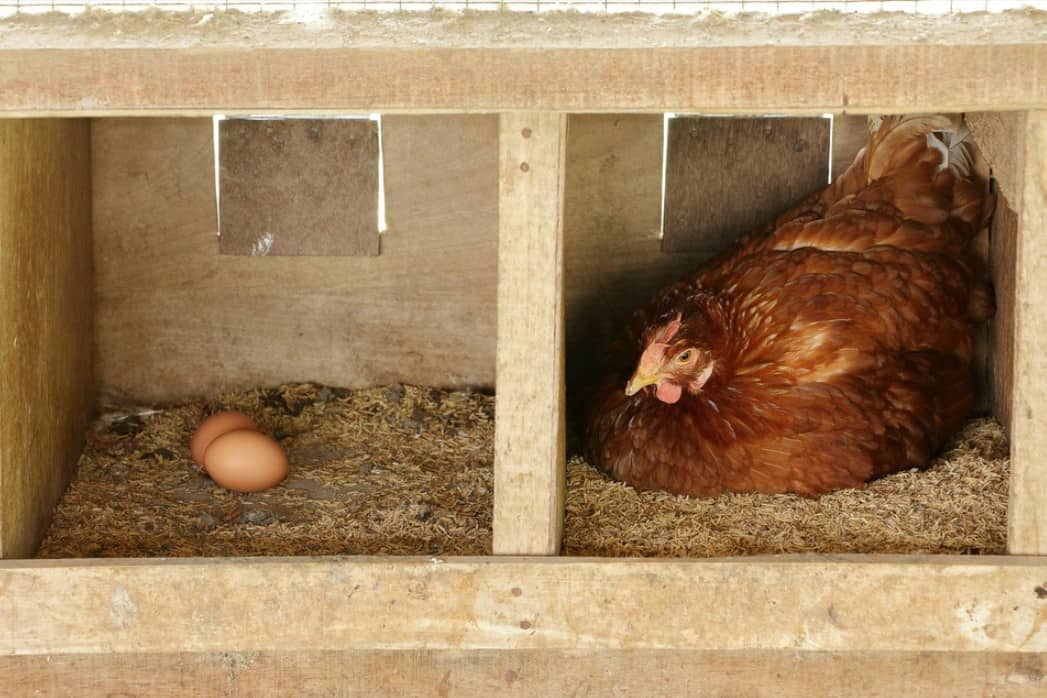
Length. The nesting box of a bantam is ideally 10 inches long. Add 2 inches for medium-sized and large-sized chickens.
Width. The nesting box of a bantam or medium-sized chicken is ideally 12 inches. Add another 2 inches for the large-sized ones.
Height. The nesting box of a bantam is ideally 10 inches high. Add 2 inches for medium-sized and large-sized chickens.
In other words:
Bantam Nest – 10 inches long, 12 inches wide, and 10 inches high
Standard Chicken Nest – 12 inches long, 12 inches wide, and 12 inches high
Large Chicken Nest – 12 inches long, 14 inches wide, and 12 inches high
Again, handlers have found different measurements to suit their needs. Experiment with what would work best for you and your hens. A piece of advice though, the hens like their nesting box how we like our beds. Cozy!
Still, having some trouble? You can ask for some extra help from chicken handlers over at How Many Chickens Per Nesting Boxes?
Roost or Perch Space
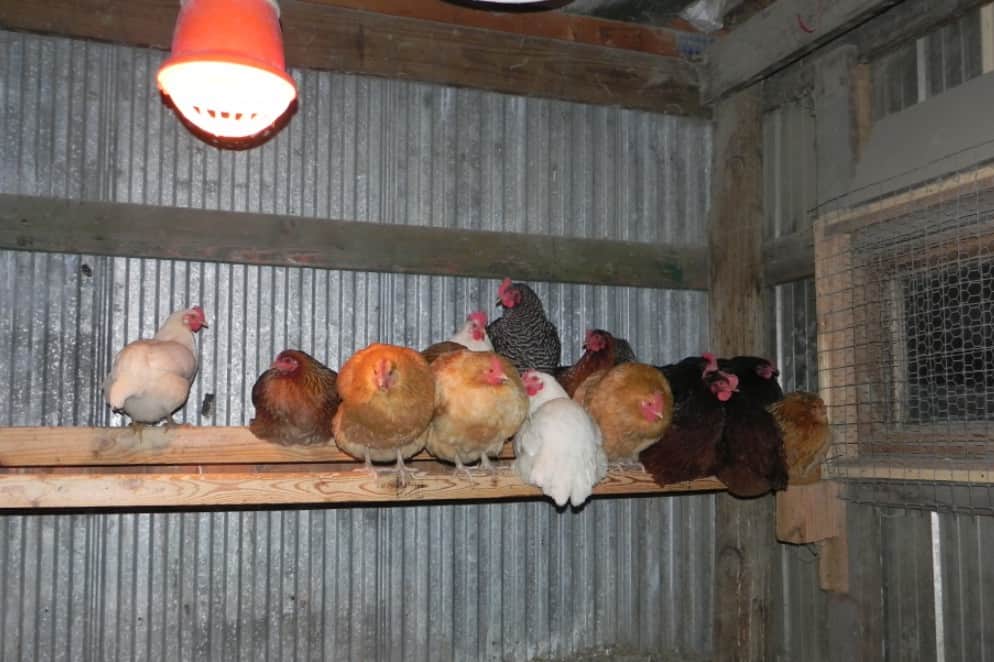
Ideally, each chicken needs around 8 to 10 inches of roost or perch space.
You also need to consider the space they need to get to the perch. Chickens use their wings when getting to the roost. There should be some space below for them to open their wings.
Run Space
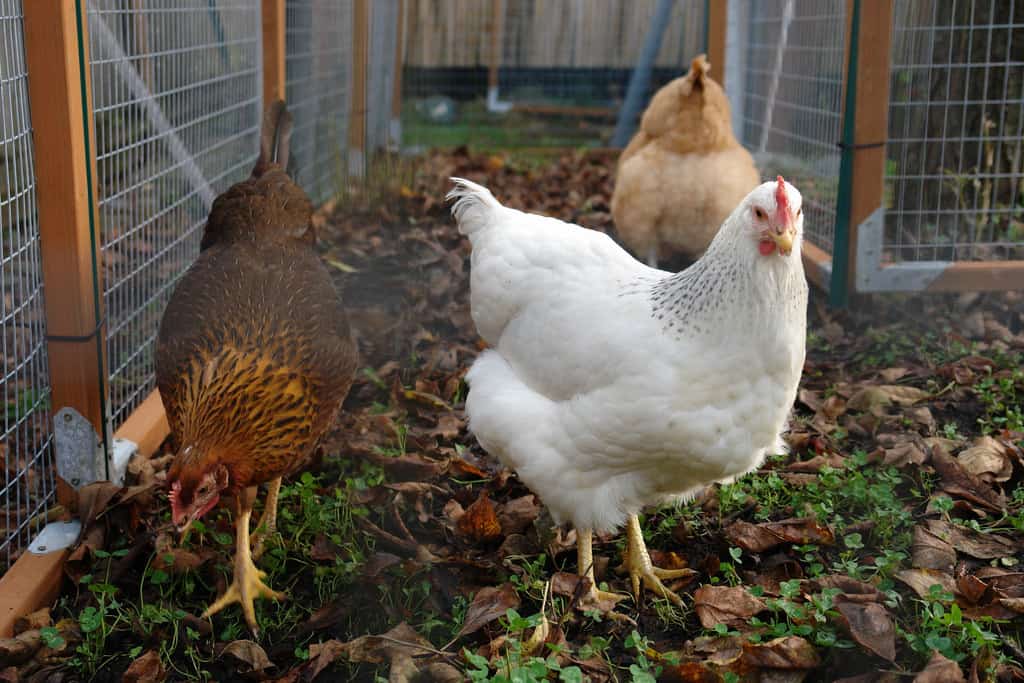
Ideally, each chicken needs 10 to 15 square feet of roaming space. If you can give them more, that would be great. As you would have guessed, the more room you can provide, the better! Of course, not in exchange for their safety.
It is good if you can let your chickens free-range. But not all chicken handlers have the liberty to do so. Usually, this is because of the predators roaming around the area. As we have said, extra space is good, but not if they’ll be in danger.
It’s not a problem if you can’t let your chickens free-range. Just make sure to give them as much space as you can on the run.
You can try chicken tunnels if you want to give them room. The chunnel will allow your birds to roam safely. We have recently listed several chicken tunnels you can make for your birds, and you can check that out if you want.
Factors in Determining How Much Space Your Chickens Need
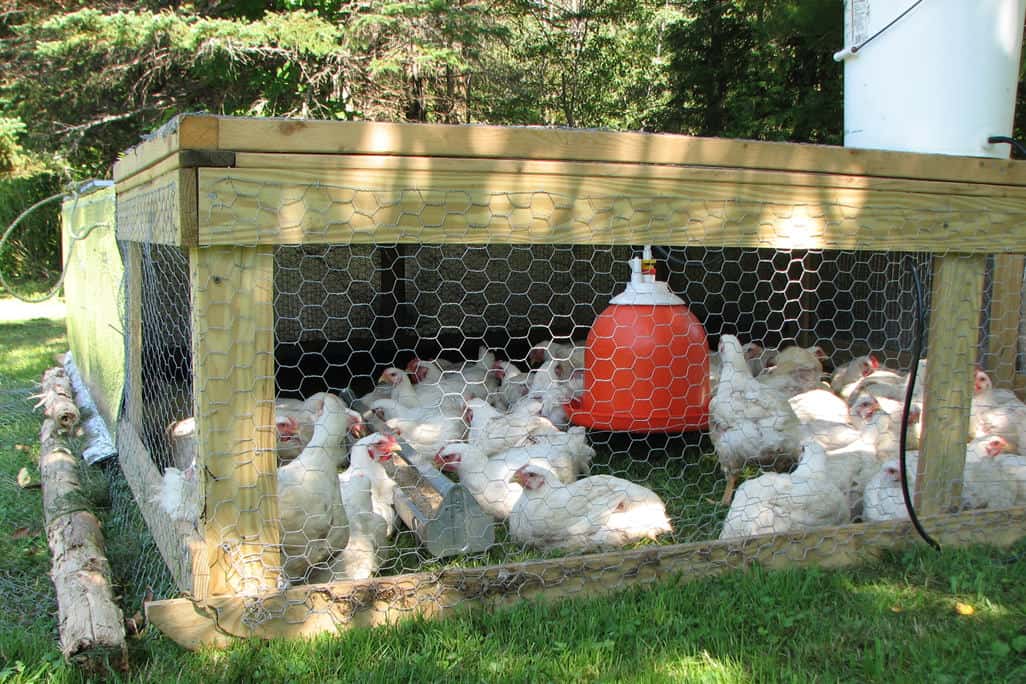
Earlier, we said several factors come into play when determining how much space your chickens would need. Many factors come into play. (e.g., your daily commitments, unexpected incidents, etc.) We can’t list down everything, but we will try to get the main factors here.
Chicken Number
The first thing you would need to consider is how many chickens are you planning to raise?
Many say that three is a good number to start. We think so too!
It would also be a good idea to see what the dynamics between these three would be. Most likely, the pioneers will control how things would go in your coop and run. See if they are possessive of their space or are they more willing to share.
Also, don’t forget to take into account your future chickens.
Do you plan on hatching and raising your chicks? Do you see yourself getting more chickens in the future? Do you want to add another rooster? These questions are vital.
Raising your chicks and getting more chickens means…, well…, more chickens. On the other hand, another rooster might mean territory setting. As you’ve already guessed, more space is needed.
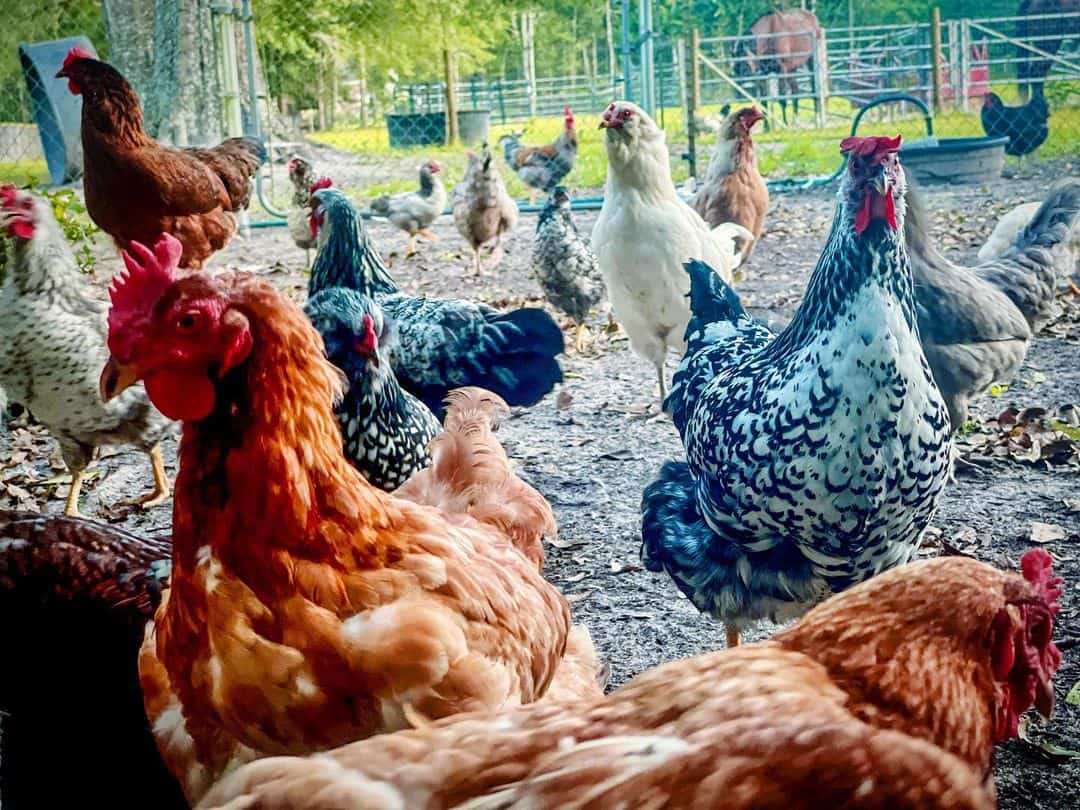
Breed
How much space you need to provide mainly depends on the breed. Of course, smaller birds would require less land. Additionally, docile chickens would be more welcoming in sharing space. Also, those who are more tolerant to conferment would do better in smaller runs.
If you plan to mix aggressive and docile breeds, then provide lots of space! You don’t want your sweet little critters bullied.
Entertainment
Again, we still suggest giving as much space as you could. But if you can only provide the minimum, then we have just the thing.
Try introducing several “attractions.”
- Scatter a few healthy treats (e.g., seeds) every once in a while.
- Make a dust bath area.
- Hang a cabbage.
- Make a quiet covered area.
- Add a swing. do you want to make a swing for your chickens? You can go here!
- Put chicken toys (e.g., xylophone)
Climate
There are places where chickens can’t usually be let out, either because it’s too cold or it’s raining too hard. In this case, you’ll have to provide them more room indoors.
Cleaning
A smaller space means you’ll have to do routine maintenance more often. We think you don’t want to deal with poop management always. Again, space is necessary.
Why Do Chickens Need Lots of Space?
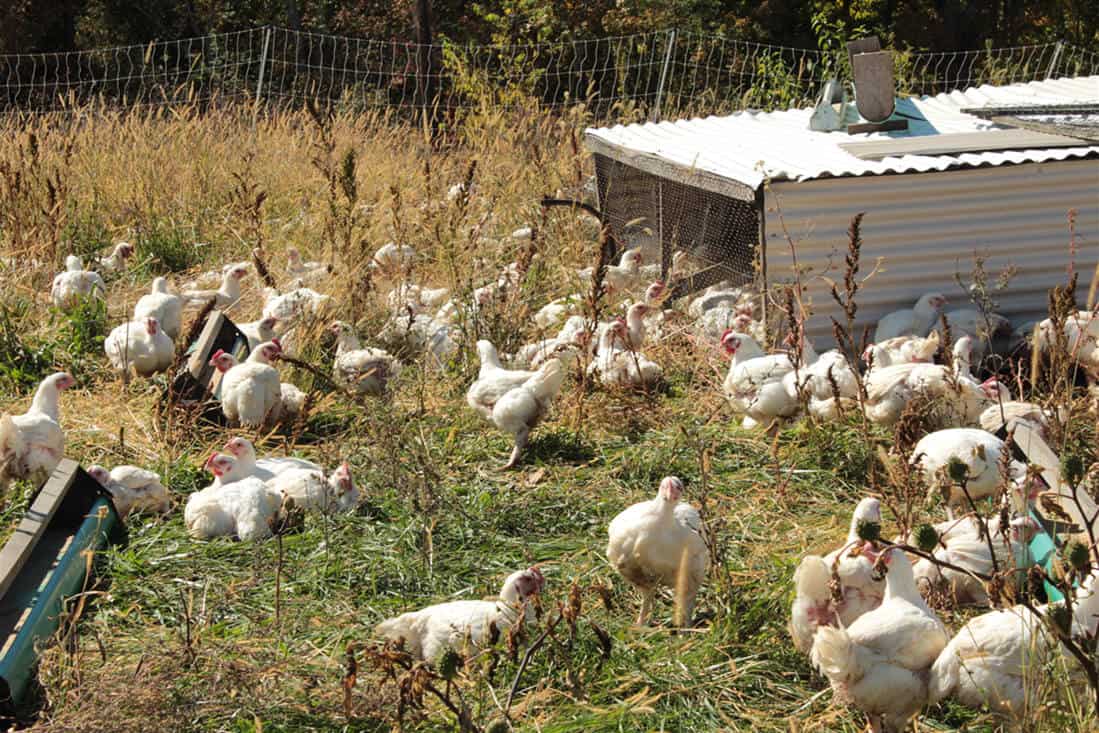
Again and again, we emphasized that chickens need space. You might be wondering why. Maybe you’re even getting tired of the repetition. But hear us out! It is important.
Not enough space could lead to many bad things!
Noise
Insufficient space bore a chicken out. It could stress the chickens out too. A bored or frustrated chicken will let you know. It will be vocal, and it will be loud.
Fewer Eggs
You might be thinking that that’s bearable. However, a stressed-out chicken will also lay fewer eggs. You might have to skip a few breakfasts without eggs.
Disease
Still, you might say that’s alright. You can skip a few breakfasts without eggs.
Are you ready for sick chickens? It will be easier to catch various diseases in small enclosures. Also, it is faster to pass the disease or infection from one chicken to another this way.
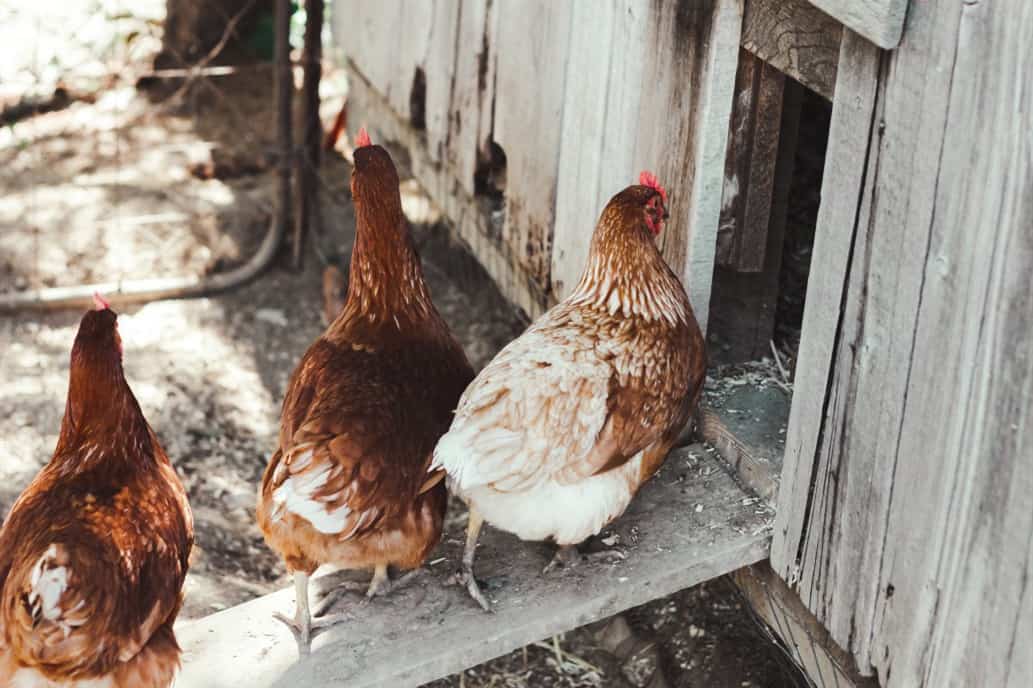
Fighting
Okay, you might say that you’ll only need to do routine maintenance more often.
Can you handle your chickens when they start to fight? Stress could lead them to turn on each other.
Feather Plucking
When the stress becomes too much, the chickens might even result in feather plucking. It is what it sounds it is. Your chicken might pluck their feathers out of frustration or boredom.
Unfortunately, that is not the worst that it could get. Stress could also lead the chickens to death and cannibalism. Yikes!
Summary
How much space do chickens need?
Chicken handlers and keepers have different needs, so there isn’t a size that would work for everybody.
However, there is an answer to that question. Lots! Chickens need lots of space to be happy and healthy.
Insufficient space would lead to many bad things and can even ultimately lead to death.
Many don’t immediately take into account how much space chickens need. And I was one of those people. I am guilty as charged. However, it is one of the most important things to consider when it comes to chicken raising.
We hope we were able to help you with another chicken concern. If you have any other questions, then you can go and check out our other posts. We might have just the answer to that concern!
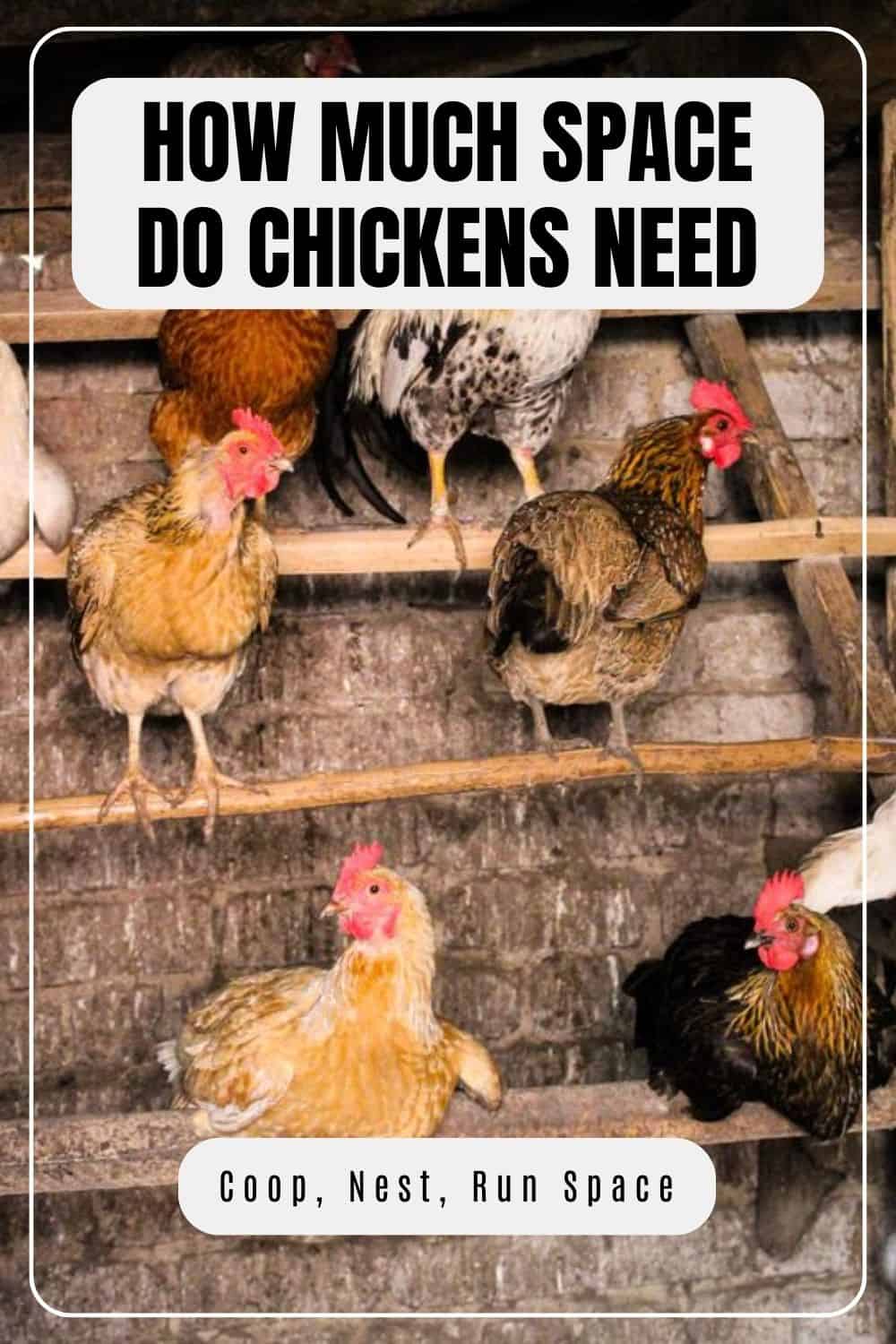

Joseph Hudson has been raising chickens for over 15 years. In 2018, he completed the Agriculture & Natural Resources program at Mt. San Antonio College. He currently raises over 1400 chickens on his 7.5-hectare farm. He keeps sharing his experience on raising healthy and happy chickens on Chicken Scratch The Foundry.
